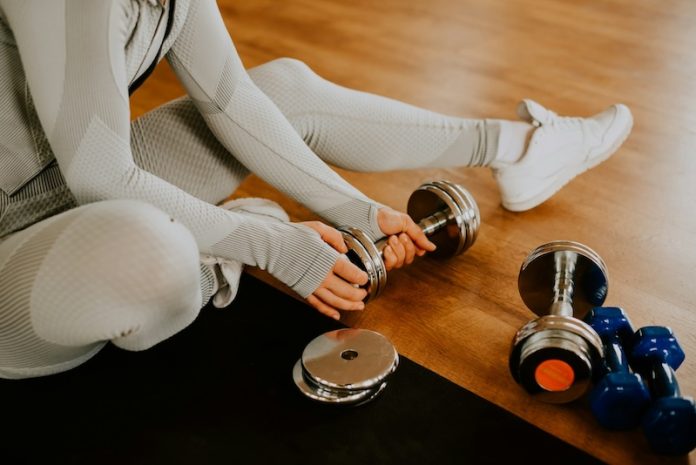
As we get older, maintaining muscle strength and size becomes more challenging.
Starting around the age of 30, people begin to lose muscle mass at a rate of 3-8% per decade, and this loss speeds up after the age of 60.
This natural process, known as sarcopenia, can lead to weakness, reduced mobility, and a higher risk of falls and injuries.
But the good news is that there are proven ways to slow down muscle loss and even build strength, no matter your age.
Muscle loss happens for a few reasons. First, as we age, our bodies produce less of the hormones that help build and repair muscle, such as testosterone and growth hormone.
Second, older adults often become less active, which means muscles aren’t used as much.
“Use it or lose it” is a real phenomenon when it comes to muscles. Finally, aging can affect how your body processes protein, making it harder to repair and maintain muscle tissue.
One of the most effective ways to prevent muscle loss is through resistance training. Lifting weights, using resistance bands, or even doing bodyweight exercises like push-ups or squats can stimulate muscle growth and strength.
Research shows that older adults who engage in resistance training at least two times a week can significantly reduce muscle loss and even gain muscle mass.
It’s never too late to start; studies have found that even people in their 80s and 90s can improve strength and mobility with regular resistance training.
Protein intake is another key factor. Protein is the building block of muscles, and getting enough of it is crucial for repairing and maintaining muscle tissue.
Experts recommend that older adults consume slightly more protein than younger adults, aiming for about 1.2 to 2.0 grams of protein per kilogram of body weight each day.
For example, if you weigh 70 kilograms (about 154 pounds), you should aim for 84 to 140 grams of protein daily. Foods like eggs, chicken, fish, beans, lentils, and dairy products are excellent sources of high-quality protein.
In addition to protein, certain nutrients can support muscle health. Vitamin D is essential for muscle function, and low levels of vitamin D have been linked to muscle weakness and falls in older adults.
Omega-3 fatty acids, found in fish like salmon and mackerel, may also help reduce inflammation and support muscle protein synthesis. Staying hydrated is equally important, as dehydration can lead to muscle cramps and fatigue.
Physical activity beyond resistance training also plays a role. Activities like walking, swimming, or yoga can help maintain overall fitness and support muscle health. Combining aerobic exercise with strength training is ideal for preserving both muscle and cardiovascular health.
Stress and poor sleep can negatively impact muscle health, too. Chronic stress increases the production of cortisol, a hormone that can break down muscle tissue.
Meanwhile, poor sleep interferes with the body’s ability to repair and build muscle. Aim for 7-9 hours of quality sleep each night and find ways to manage stress, like meditation or spending time with loved ones.
Here are some practical tips to prevent muscle loss as you age:
- Incorporate strength training. Aim for at least two sessions a week focusing on major muscle groups.
- Eat more protein. Include a source of protein in every meal and snack to meet your daily needs.
- Stay active. Combine resistance training with activities like walking, swimming, or cycling.
- Get enough vitamin D. Spend time in the sun or consider a supplement if your levels are low.
- Stay hydrated. Drink plenty of water throughout the day to keep your muscles functioning well.
- Prioritize sleep. Create a relaxing bedtime routine to improve your sleep quality.
- Manage stress. Practice techniques like deep breathing, yoga, or mindfulness to keep cortisol levels in check.
Preventing muscle loss is all about consistency. By staying active, eating well, and taking care of your overall health, you can stay strong and maintain your independence as you age.
If you care about muscle, please read studies about factors that can cause muscle weakness in older people, and scientists find a way to reverse high blood sugar and muscle loss.
For more health information, please see recent studies about an easy, cheap way to maintain muscles, and results showing these vegetables essential for your muscle strength.
Copyright © 2025 Knowridge Science Report. All rights reserved.



